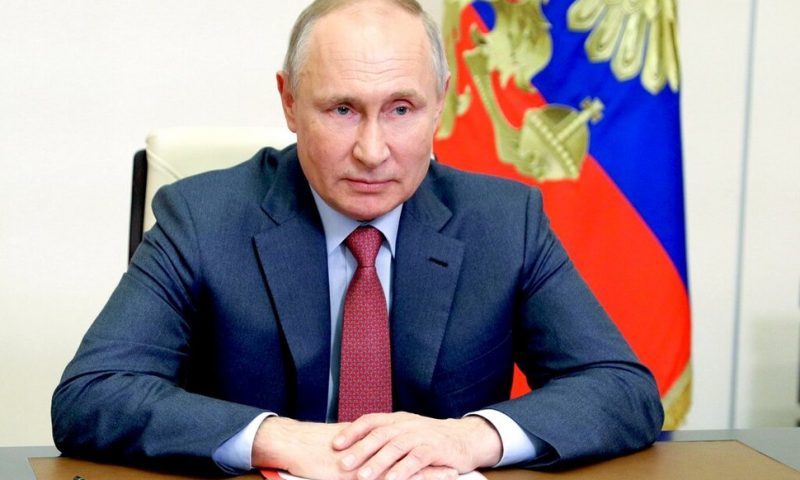The list, composed only of the U.S. and Czech Republic, is seen by Russian officials as a way to punish Washington for increased acts of aggression.
The Russian government on Friday formally categorized the U.S. as an “unfriendly country” in retaliation for new American sanctions last month.
The new order from Moscow approves “the attached list of foreign states committing unfriendly actions against the Russian Federation, citizens of the Russian Federation or Russian legal entities,” according to a translation. Despite an extensive group of candidate nations with which Moscow has had high-profile grievances in recent years, the final list includes only two countries: the U.S. and the Czech Republic, which has feuded with Russia in recent years over an explosion at one of its arms depots in 2104 and last month expelled more than a dozen Russian diplomats. Moscow denies any involvement.
The Kremlin did not immediately clarify the deliberative process that went into selecting the countries, but it aligns with the wishes of Russian President Vladimir Putin from instructions he gave the legislature after signaling his interest in creating such a list last month.
Despite its ominous connotations, though, the new classification may be more symbolism than substance. In practice, it only limits the extent to which countries can hire Russian nationals at their embassies in Moscow and other diplomatic facilities. The Czech Republic is now limited to no more than 19 workers. The U.S. now may not hire any.
And to put the selections in context, Russia did not name to the list Ukraine – home to an ongoing war with Russian separatists backed by Moscow – and Poland, the site of increased NATO activity in recent years in an attempt to deter against what the alliance considers Russian provocations. Both countries previously have been among those that Russian officials in the past have rhetorically considered unfriendly.
The Russian Embassy in Washington, D.C., did not respond immediately to requests for comment.
The classification comes amid heightened tensions between Moscow and Washington, particularly following U.S. intelligence assessments that Russian agents were behind serious cyberattacks on federal government servers, including one identified last year as SolarWinds, the name of the company the hackers exploited to gain access. More recently an apparently Russian criminal cyber gang known as DarkSide attacked the networks of a key fuel pipeline that serves 50 percent of the U.S. East Coast’s supply.
Moscow has denied any involvement in the incidents. The Biden administration responded by imposing new sanctions on Russia and expelling diplomats from its embassy in Washington. President Joe Biden himself has invited Putin to meet in an attempt to reduce tensions.
Russian leaders have previously expressed the need to generate a list of unfriendly countries and highlight what they perceive as aggression from the U.S. Its Federal Council in 2018 discusses imposing “counter-sanctions” against the U.S. and the U.K. following new rounds of economic sanctions those countries imposed on Russia at the time.
Following criticism for Russian operatives’ reportedly poisoning a former double agent, Moscow in 2018 encouraged its citizens to return home from what it considered “unfriendly countries.”

